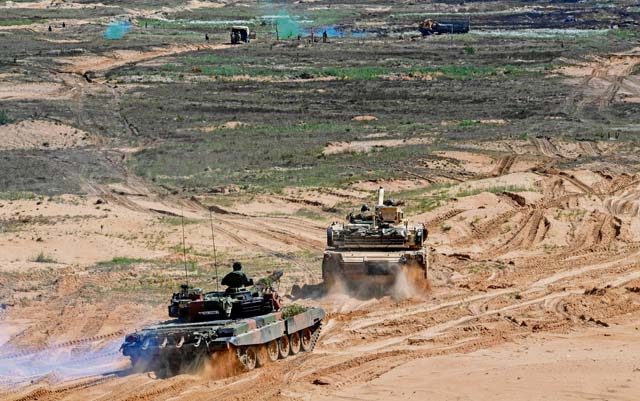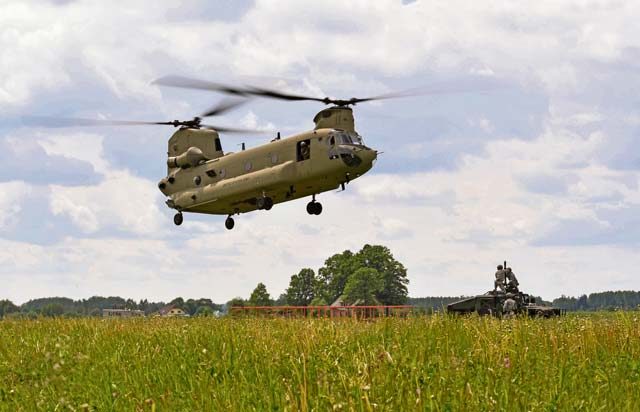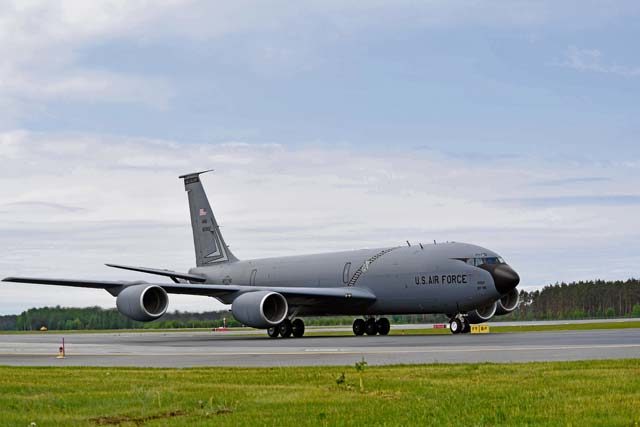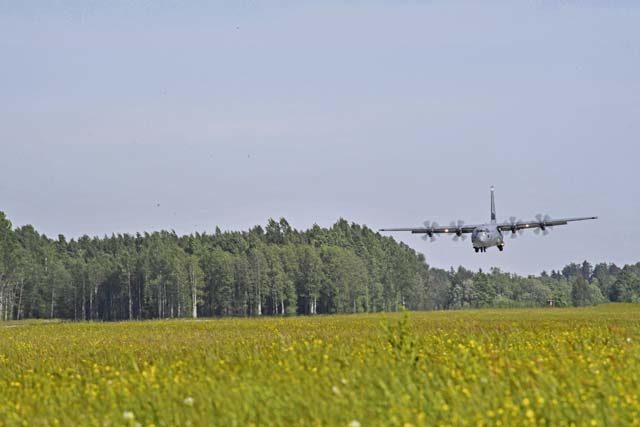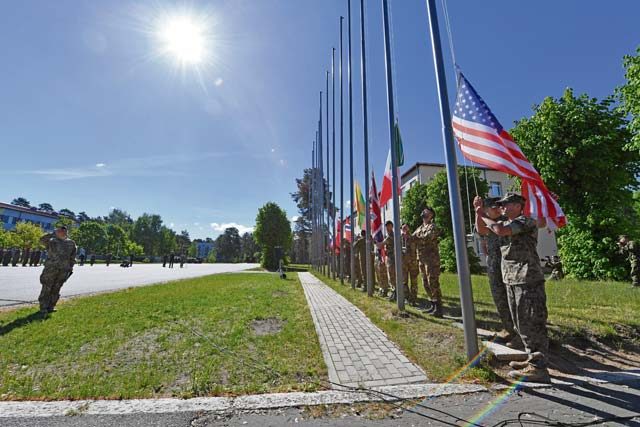
ADAZI MILITARY BASE, Latvia — 11,000 U.S. and NATO military members from 20 countries wrapped up exercise Saber Strike 17, June 24. The exercise took place in various regions in the Baltics and Poland from May 28 to June 24.
Saber Strike 17 is this year’s iteration of a long-standing U.S. Joint Chiefs of Staff-directed, U.S. European Command-scheduled, U.S. Army Europe-led cooperative training exercise.
Participating nations included Belgium, Canada, Croatia, Den-mark, Estonia, Fin-land, France, Germany, Italy, Latvia, Lithuania, Luxem-bourg, Nether-lands, Nor-way, Poland, Portugal, Slo-venia, Slovakia, the United Kingdom, and the U.S.
This year’s key training objective was to exercise with NATO’s enhanced Forward Presence Battlegroups as part of a multinational division, while conducting an integrated, synchronized, deterrence-oriented field training exercise designed to improve the interoperability and readiness of participating nations’ armed forces.
“Less than one year ago, our Alliance said we were going to transition from assurance to deterrence,” said Lt. Gen. Ben Hodges, U.S. Army Europe Commanding General. “One of the manifestations of that transition was the creation of the eFP Battlegroups. In less than one year, these battlegroups are exercising already in Estonia, Latvia, Lithuania, and Poland. That is an amazing accomplishment for our great Alliance.
“Deterrence means you have to have the capability to compel or defeat a potential adversary,” he continued. “You have to demonstrate that capability and the will to use it, and these exercises are that demonstration.”
Key training events of the exercise included a convoy by Battlegroup Poland from Orysz, Poland, to southern Lithuania; a maritime prepositioned offload of pre-staged supplied and equipment in Latvia; a Marine amphibious assault in Latvia; two combined arms live-fire exercises, one each in Poland and Lithuania; an air assault by the British Royal Marines at the Polish and Lithuanian border; and a river crossing in the same area.
“If you would like to have skilled soldiers, you have to train every day,” said Maj. Gen. Leonids Kalnins, Latvian army chief of defense. “If you would like to be safe as a state, you have to find Allies; but if you would like to be the winner and create a great future for all countries, for all society, you have to participate in such exercises as this one.”
The Saber Strike program facilitates cooperation between the U.S., allied, and partner nations to improve joint operational capability in a variety of missions and prepare participating nations and units for future operations while enhancing the NATO Alliance.
During the exercise, U.S. and NATO distinguished visitors attended a demonstration of the joint and combined capabilities of the U.S. and NATO at Adazi Military Base, Latvia.
One of the visitors was Nancy Bikoff Pettit, U.S. ambassador to Latvia, who spoke about the importance of the exercise.
“I think exercises like this send a very strong message,” Bikoff Pettit said. “It’s not only the U.S. who is interested in security and defense here in the Baltic region, it’s all of our NATO allies working together.
“This exercise demonstrates what happens when many NATO allies come together to co-operate and demonstrate the interoperability that we have,” she continued. “We are really pleased with the quality of the exercises.”
Saber Strike 17 promotes regional stability and security, while strengthening partner capabilities and fostering trust. The combined training opportunities that it provided greatly improve interoperability among participating NATO Allies and key regional partners.
“The U.S. is here,” Hodges said. “We’re going to continue to participate in exercises; American soldiers love serving with Latvian soldiers. This is a great place to train and we’re excited about doing that for as [long] as I can see.”
As the seventh iteration of this exercise, Saber Strike 17 continues to provide a venue for U.S. and NATO military members to train and learn from one another to form a stronger partnership.
